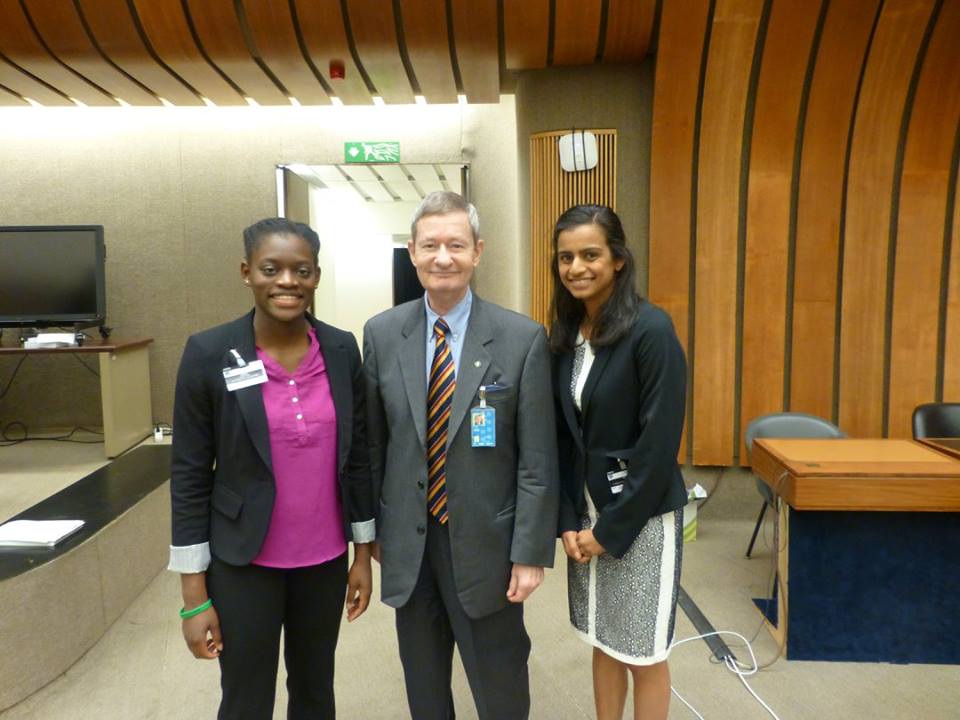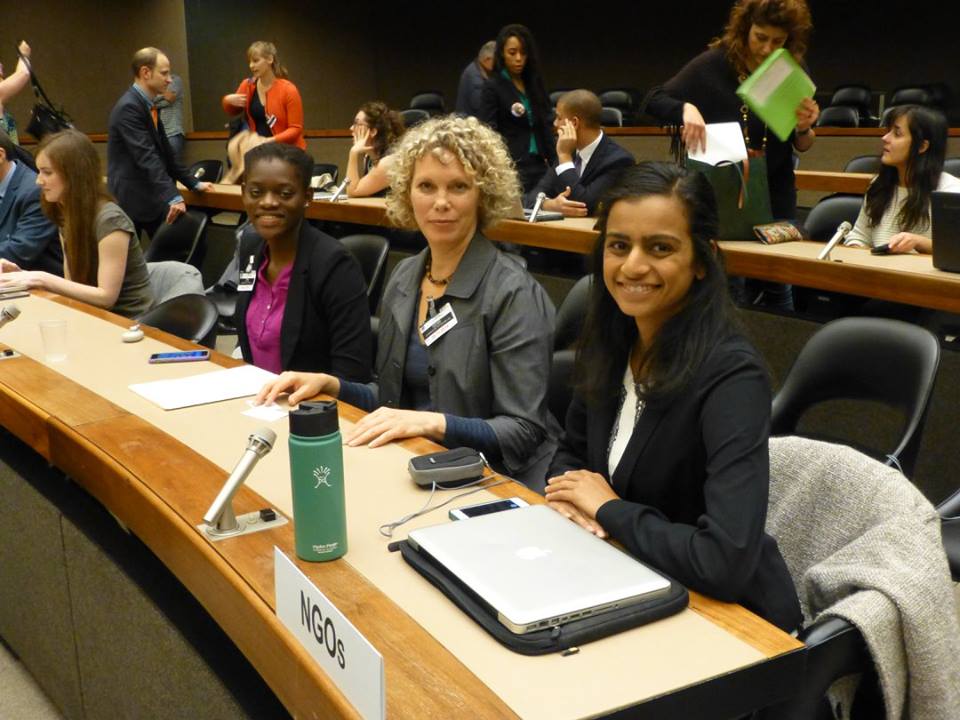By Andrew Cohen

A Berkeley Law clinic’s influence on global human rights issues is evident in a new report from the United Nations Committee against Torture (UNCAT). In its searing review of the United States’ record, UNCAT cited a major Guantanamo Bay study by the International Human Rights Law Clinic (IHRLC), endorsed language the clinic proposed for defining torture, and echoed the clinic’s call for redress for former Guantanamo detainees.
Over two days of hearings last month in Geneva, IHRLC—represented by director and clinical Professor Laurel Fletcher and students Bina Patel ’16 and Shanita Farris ’16—joined other civil society groups who voiced their concerns to UNCAT members and U.S. government officials. The clinic wrote one of 60 shadow reports submitted to the committee on various human rights issues.
Each UN treaty has a monitoring body of 10 independent experts who review reports on nations that ratified the treaty. The committee then issues concluding observations about what each nation is doing well, and where it needs to improve to comply with the treaty obligations. The UNCAT review—its first of the U.S. since 2006—identified several transgressions against international standards of human rights such as water-boarding, police brutality, and mistreatment of pregnant prisoners.
“This was a great chance for us to draw attention to our findings in the context of the first review of the Obama Administration,” Fletcher said. “The U.S. is only party to three UN human rights international treaties, so there aren’t many opportunities on an international stage to review U.S. compliance.”
Patel and Farris prepared the clinic’s shadow report, which focused on the definition of torture and proposed consequences to treaty violations, with Berkeley Law’s Human Rights Center and the Center on Constitutional Rights. Those groups helped IHRLC produce its groundbreaking 2008 study on former Guantanamo detainees—who were held for years without being charged before their release—and endured lasting economic, physical, and psychological harms.
Fletcher and Human Rights Center Faculty Director Eric Stover traveled to nine countries, speaking with 62 former detainees. They also talked to 50 others who had been stationed at the naval base or had worked around the Guantanamo system—including U.S. government, military, and civilian personnel, and the detainees’ lawyers. Citing the study’s harrowing findings, IHRLC advocated for a definition of physical torture that included the cumulative effect of isolated acts.
“Our evidence of what detainees had experienced, as well as scientific literature, showed that torture and illegal cruelty can come about not just from a single incident, but from the aggregate of seemingly less severe treatments,” Fletcher said. “In isolation, such an act may not rise to that level. But, when you take them together, it can result in torture.”
Learning to lobby
In Geneva, Patel and Farris lobbied UNCAT members to include the clinic’s recommendations in their final report. “Beforehand, we discussed strategy for how to talk to members of the U.S. government delegation,” Farris said. “We also discussed how to approach committee members who’d be asking the delegation questions.”

Those efforts clearly paid off when UNCAT member Kening Zhang of China cited the clinic’s Guantanamo report while questioning the U.S. government delegation.
“He was the first person we approached, sort of as a warmup, before talking to other committee members we thought we’d have more of an in with,” Farris said. “But he was surprisingly receptive.” Patel noted how “it’s very rare that a committee member directly quotes a report by name. That was really exciting.”
The UNCAT report proved even more exciting, as the committee—recognizing the ill-treatment that can arise from the impact of seemingly smaller injuries—used the term “cumulative effect” for the first time: “The Committee … notes the studies received on the cumulative effect that the conditions of detention and treatment in Guantanamo have had on the psychological health of detainees.”
The clinic’s arguments were also plainly heard regarding redress for victimized detainees: “The Committee calls upon the State party to take immediate and effective measures to…Investigate allegations of detainee abuse, including torture and ill treatment, appropriately prosecute those responsible, and ensure effective redress for victims;…”
While in Geneva, Farris provided regular hearing updates on social media while Patel took copious notes. They also met with other human rights organizations and helped coordinate side events for U.S. civil society members—which included former Guantanamo detainees, those affected by police actions in Ferguson, and former transgender prisoners.
“It’s easy to treat these issues as conceptual or theoretical when you’re conducting research,” Patel said. “But being in a room with people directly impacted by mistreatment and hearing their personal accounts of what happened to them, that brings an emotional component to all of this.”